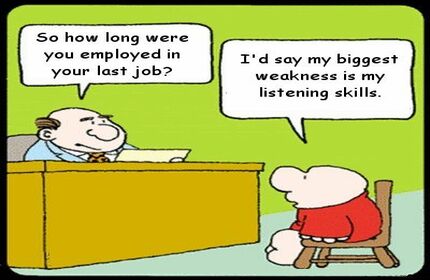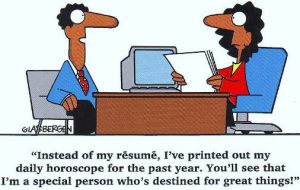If you are not a fan of job interviews then you’re not alone!
We have delivered our Job Application & Interview Skills training course to well over 4,000 NSW Government, Local Government and Federal Government employees, and we can emphatically confirm from our experience that on average at least 19 out of 20 people dislike interviews! They’re often one of the most stressful events you can experience.
Unfortunately, whichever job you’re going for in the Public (or Private) Sector, an interview will almost certainly be part of the process. Despite all the changes with the GSE Act 2013 Regulations and Rules, and application of the Capability Framework, interviews are still an integral part of the Government job application process. So how can you do your best, or even get better at them?
Our Top Tip
The golden rule for interviews is to make sure the real-world, relevant example you give in your answer contains a clear result that distinctly demonstrates you did a great job. This is the difference between a great answer and a poor one.
In our experience, about 85% of people don’t do this at all, or they do it ineffectively. Being able to provide an example of a good result has a big impact, and provides the panel with the evidence they need to justify awarding you the role above someone else. This rule, of course, also applies to written job applications and your CV/resume, hence why we also guide people through preparing these documents during our training.
The majority of people are great at explaining their responsibilities. Most are also good at setting the scene and describing the circumstances that lead them to the task in question. And most can reiterate the actions or processes required to achieve the specific outcome.
However, the vast majority of people in interview situations stop there. Many have never stopped to think, how do they know, and what demonstrates that they are doing a good job?
Additionally, most people are uncomfortable talking about their successes, which isn’t helpful when trying to get a job! We’re often very quick to reprimand and judge what we’re not good at, but poor at recognizing strengths and acknowledging success. The historical Australian ‘tall poppy’ syndrome/culture doesn’t help.
However, in a job interview, you’re there to sell yourself and convince the panel that YOU are the best person for the job. So make sure you take your answer a step further and explain the results that demonstrate you got a good outcome , and also why it was a good outcome.
Highlight the measures of success to the panel and let them know what made it a good result. The panel may understand that you’re brilliant at doing all of the things that you’ve stated. However, without any evidence, how can the panel assess that you really did a sterling job? Without a result, they cannot.
Telling a story of what you did without providing an end result is like watching a film and missing the final scene. It’s inconclusive – you don’t know if it was a happy ending or a shocking failure! The panel needs evidence to justify your ability over another applicant in order to offer you the job. The results that you have achieved are the measures of how well you did your job. Those results are the evidence they need, so you need to give them what they require if you want the role.
So, the next time you’re answering an interview question or writing an application, make sure you’re adding a result to your answer.
We recommend the STAR principle in our in-house Job Application & Interview Skills training programs. It’s simple, easy to understand and easy to remember. It guarantees that you follow a great story configuration that ends on the result, so the last thing the panel hears in your answer is your great outcome.
The better the result, and the more you concentrate on the successful outcome that demonstrates your ability, the more likely you are to be successful in your applications and interviews. It will make a huge difference. Good luck!
If you’d like to find out more about our customised in-house Job Application & Interview Skills training program for groups or Career Coaching for individuals, please get in touch.
We customise the program to every agency/group, and have successfully adapted it to cover most Capability Frameworks and processes. For NSW Government, we include the GSE Act changes and the course is fully GSE Act 2013 compliant. We’ve also successfully customised and adapted it to specific Local and Federal Government requirements. Please get in touch to discuss how we can work with you.
Warm regards,
Your Team at Southern Cross Coaching & Development
Making the world a better place through better leadership

























































